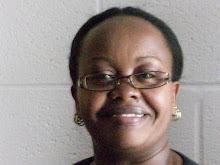The Association for Progressive Communications (APC), the Government of Kenya and the International Chamber of Commerce’s (ICC) BASIS initiative (Business Action to Support the Information Society) organised a workshop Technology, Economic and Societal Opportunities and Womenduring the just ended IGF in Baku.
The focus was on existing Internet-related economic, cultural, political and social opportunities for women, and the gaps that exist. I participated as a lead discussant and I must say that participants enjoyed a stimulating debate which raised a couple of issues and made several recommendations. I will just highlight some of the issues.
Antoaneta Angelova-Krasteva of DG CONNECT pointed out that In order to reap the full benefits of modern technology; women need digital rights and cultural participation. There is still low participation of girls in science subjects and ICTs. Therefore investment in infrastructure must go together with digital skills for women.
Alice Munyua representing the government of Kenya observed that Cyber violence is prevalent and affects women differently. She called on ISPs to come up with a focus on women in their user policies and recommended a multistakeholder response, with policies not only from government, but also from business and the technical community in the provision of services and development of contracts
Yara Salam spoke about online campaigns on human rights defenders in Egypt. She pointed out that women are afraid to socialize in public spaces in Egypt less their pictures are taken and posted on face book in particular if they are drinking or breastfeeding. How can such women protect themselves online? She raised the question of how important is localization of issues so that cultural limitations can be dealt with? Should there be more support from authorities for online human rights defenders?
Theresa Swinehart of ICC pointed out that there are many women emerging in internet governance leadership. However work still needs to be done so that conversations are created to inspire more women. “Business must invest in infrastructure in a responsible way so that women are involved”. She emphasized the importance of the free flow of information, and discussed the factors that limit online participation by women, including literacy and influence in government.
Grace Githaiga from KICTANet gave examples of Kenya’s constitutional provision meant to empower women but which are proving a challenge on how to implement for example in job opportunities where women do not apply, or in electoral positions where they do not present their candidature. Women’s issues are still considered a soft issue by legislators, and a formula for implementation of the third gender rule is needed. She emphasized the importance of online services that are relevant and resonate with women's daily lives and aspirations.
P. Usha Ranid from India reported that they are using mobile based technology for improving agricultural practices and in health where they monitor their babies’ weights and record on charts.
A participant was concerned that we may be hurting women’s interests when we group them broadly considering that experiences are different between the developed and the developing countries. She wondered whether service providers have different terms of use by women user and whether there is need for programs that are in accordance with religious norms.
George Nyabuga of Afrinic felt that technology is never neutral and that culture and social norms are a hindrance to women embracing technology. “The kinds of effects we get arise from modality of use and unless there is a serious cultural change, technology will not change the way things are done”. He highlighted the way in which online abuse reflects offline marginalization, and the importance of culture shifts offline in order to improve women's empowerment both online and offline. Therefore “we must engage in ways that will impact cultural change of how we conduct business and therefore technology”.
Lilian Naluoga from Uganda talked of the need to profile role models and on women who have made it against all odds in their work on ICTs. “We need role models to inspire girls to study science subjects and ICTs”.
Some of the recommendations that emerged from the session were that there is need for sustained multistakeholder dialogue on strategies for women's leadership and active participation on Internet-related activities and empowerment.
Further, programmes and recommended solutions to address issues of access and empowerment for women and girls must take into account multiple dimensions – economic, political as well as importantly, social and cultural issues. And most important is that the session on women and IG must be institutionalized so that it takes place in all IGFs.
In thanking the participants, Ayesha Hassan of ICC, pointed out that the session on women and IG started in Nairobi, Kenya in 2011, and as a result, women issues have come up in 2012 IGF on the Access and Diversity sessions. “This meeting therefore is a building block” she concluded.
